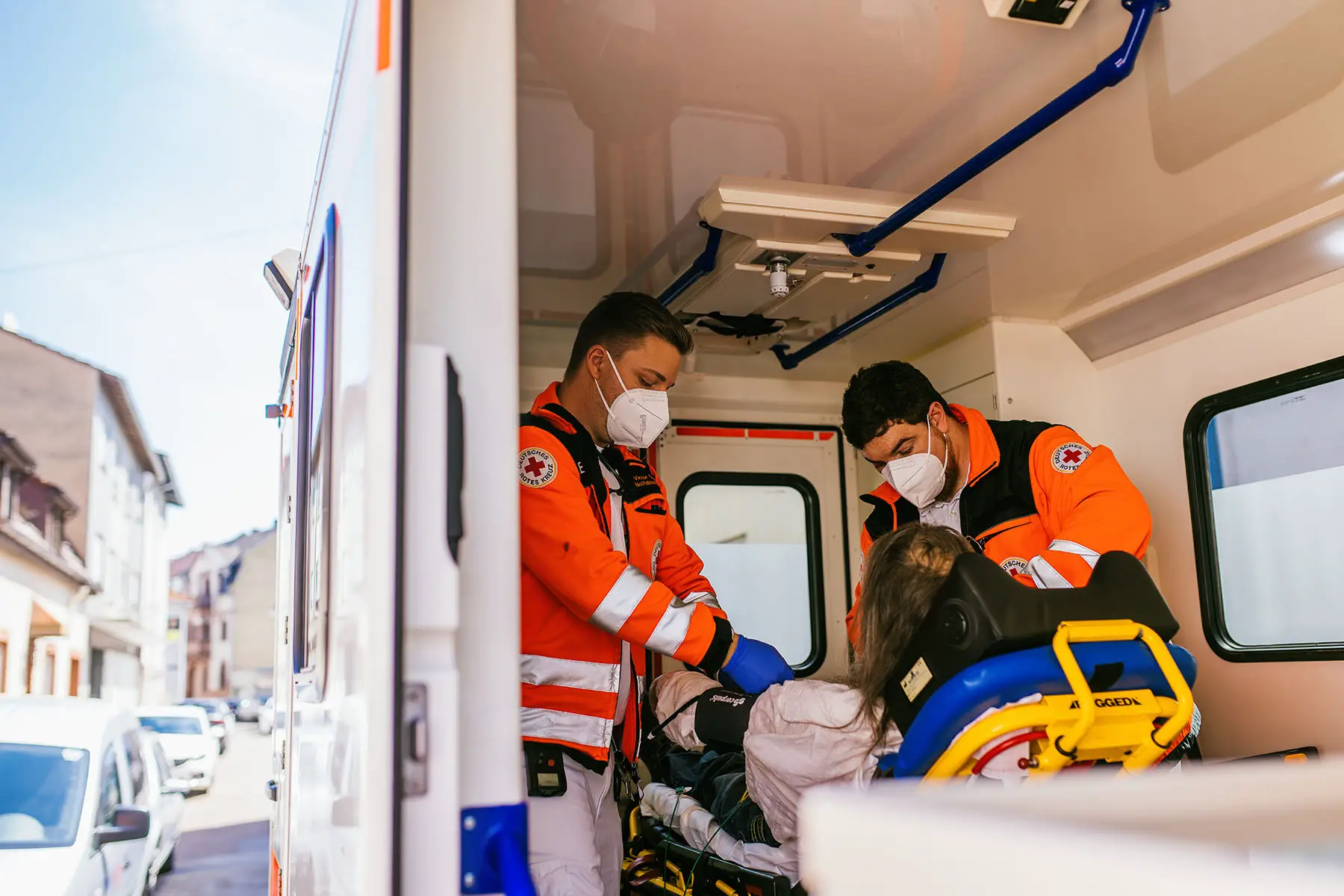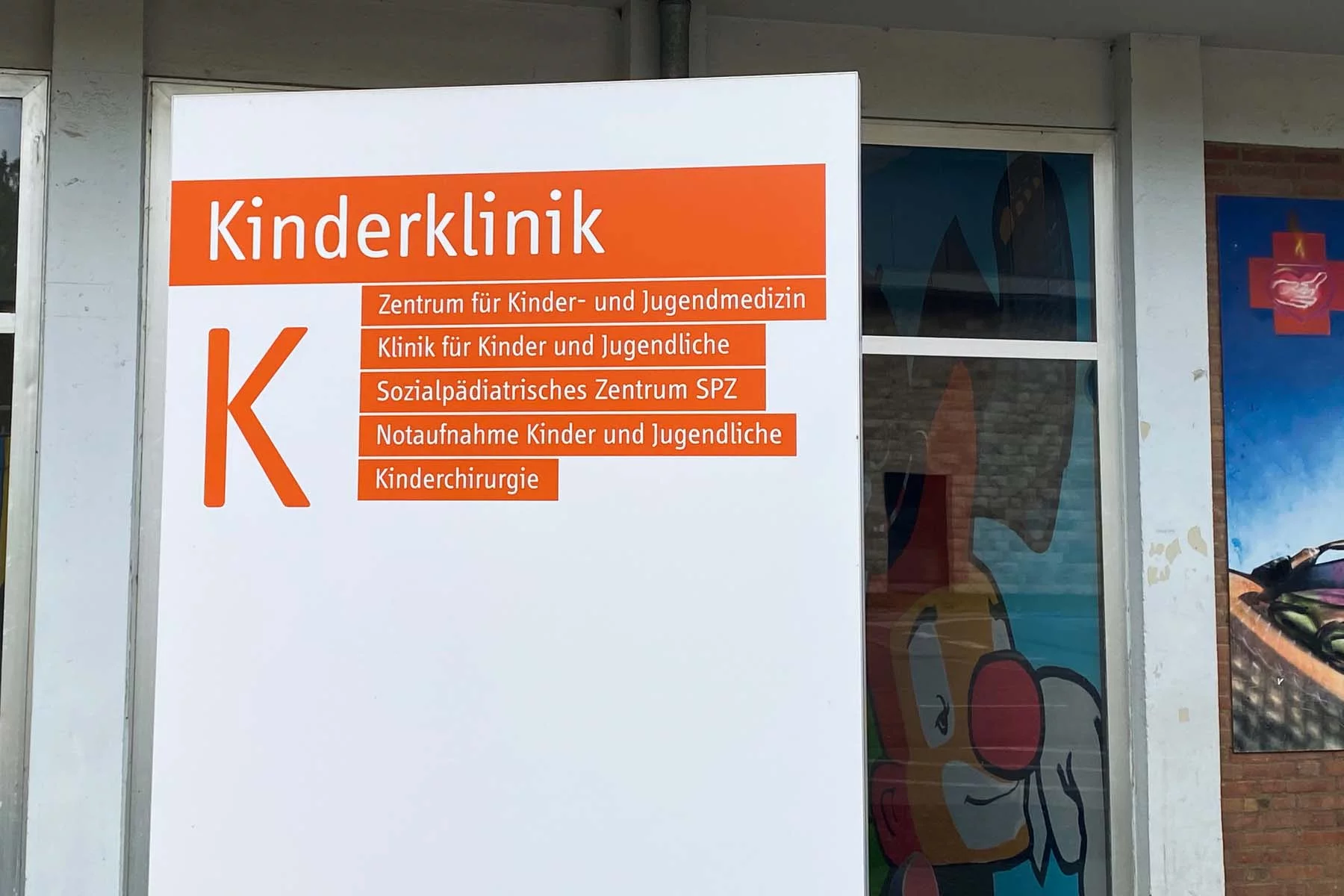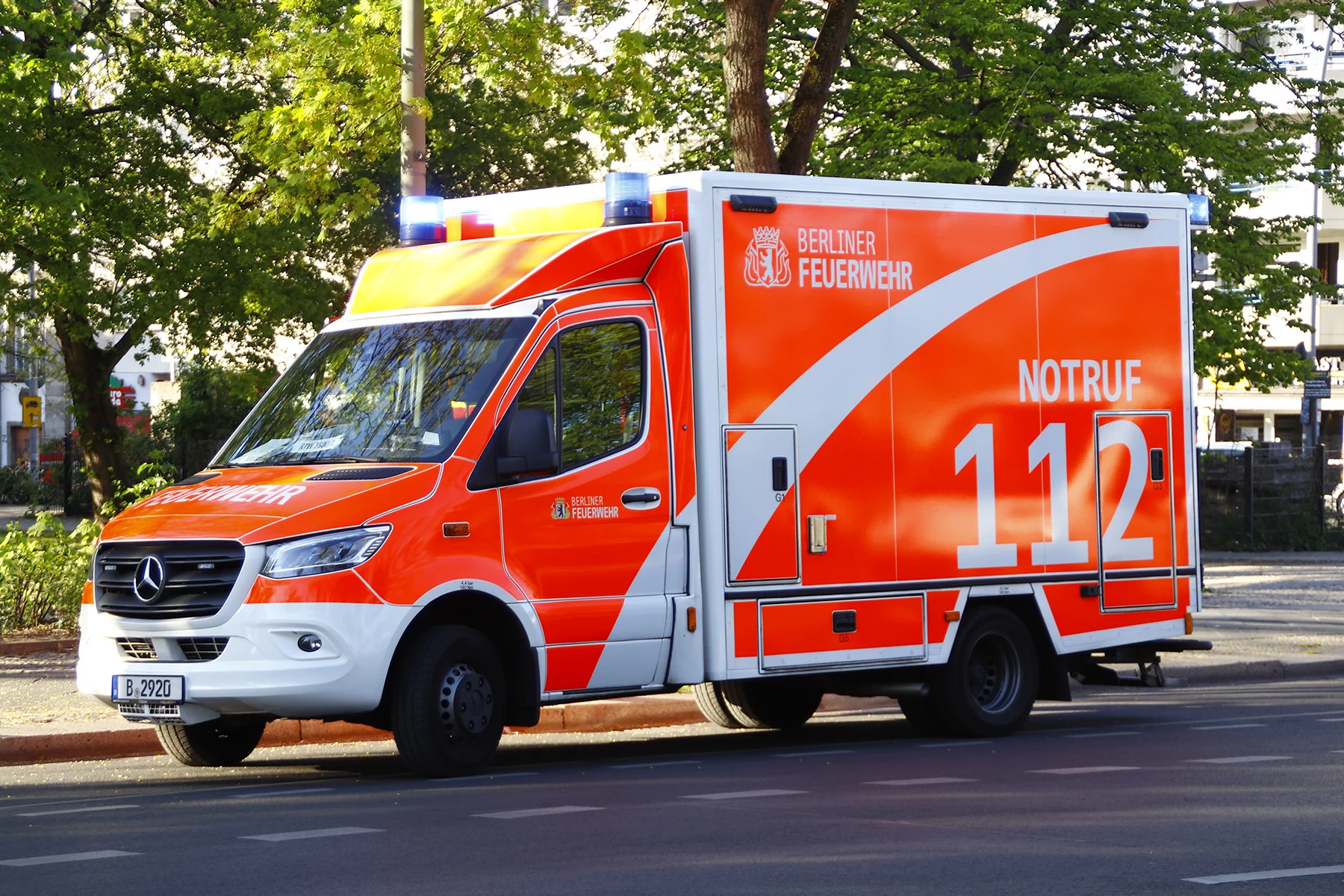Raising a child in a new country comes with a lot of questions, especially with regard to their health. The good news is that Germany’s healthcare system is designed to support families from day one, with free coverage for children, a solid network of pediatricians, and routine preventative care.
So, whether you’re new in town or adjusting to a new system, here’s how to find the care your family needs:
Cigna Global
Enjoy peace of mind while living in Germany with Cigna Global’s long-term international health insurance plans (12+ months). Get tailored coverage, direct billing with many providers, complex case management, and global care on demand, with access to a network of 1.5+ million doctors, specialists, and therapists.
Children’s healthcare in Germany
Germany’s healthcare system offers broad and universal coverage, including when it comes to children. During pregnancy, regular check-ups are covered by statutory health insurance, including basic screenings and three ultrasound exams.

Most medical treatments start with your local family doctor or GP (Hausarzt), who can refer you to a pediatrician or specialist if needed.
Each state (Bundesland) in Germany also has its own child and youth welfare offices (Jugendamt) that offer family support services. These can include parenting advice, home visits, or referrals to psychological or educational support. Of course, the quality and availability vary depending on where you live.
Is healthcare free for children in Germany?
Yes, healthcare for children in Germany is free, as long as they are co-insured under their parents’ or guardians’ health insurance. Families with public insurance (gesetzliche Krankenversicherung – GKV) don’t pay any additional monthly premiums or deductibles for their kids. Children can remain on their family policy until they turn 25, after which they must get their own insurance and start paying the associated fees.
If one of the parents has private health insurance (private Krankenversicherung – PKV), their child must also have private insurance. This will come with extra fees.
Insurers providing global healthcare coverage in Germany include:
For more information, check out our article on German health insurance.
Financial support for children’s healthcare costs
While parents don’t typically pay insurance premiums for children, they do have to pay their own insurance premiums. These can be quite costly; in 2025, the contribution rate is 7.3% of your gross income.

Low-income families can apply for a monthly child allowance (Kinderzuschlag) from the German government. Depending on your income, you can get up to €297 per month per child (2025).
For more information, check out our article on childcare in Germany.
How to access children’s healthcare in Germany
After signing up for health insurance, parents or guardians can register their child with their local GP practice (Hausarztpraxis). You are free to choose any doctor you want, and you can switch physicians freely. That said, Germany has one of the lowest numbers of family doctors in Europe, and you may have to call around for a while to find one that takes on new patients.
Family doctors handle basic pediatric complaints, conduct routine tests, and coordinate follow-up treatments. If need be, they can refer you to a pediatrician or specialist.
For medical issues outside regular opening hours, you can also contact the on-call services (Bereitschaftsdienst) at 116 117. These doctors on duty work all day, even during the weekend and on public holidays.
How to get treatment as a non-resident in Germany
Our article on German health insurance covers the topic in more detail, but as a quick summary:
- Temporary visitors from the EU and EFTA (Iceland, Liechtenstein, Norway, and Switzerland), including children, can use their European Health Insurance Card (EHIC) to access healthcare in Germany
- UK nationals can access healthcare through their Global Health Insurance Card (GHIC)
- Citizens from elsewhere must take out a short-term international health insurance policy to cover their stay in Germany
- Long-term residents (people staying for more than 90 days) must sign up for German health insurance
For non-life-threatening injuries (like a bump to the head, but your child is conscious and alert), you can call a local GP or an out-of-hours doctors’ service. Even if you aren’t a resident, many regions allow short-term visitors to contact them for medical advice or an appointment.

In life-threatening emergencies (your child bumped their head and is unconscious or vomiting), call 112 for an ambulance. The EMTs can assess the situation and take you to the nearest hospital emergency room.
Non-resident patients must pay any costs upfront and claim reimbursement afterward through their EHIC/GHIC or travel insurance. Ambulance rides may or may not be covered by your insurance, so it’s wise to check this beforehand. Without coverage, the cost can range between €1,100 and €1,300, depending on the location, the distance, and the type of care provided.
Overview of children’s doctors in Germany
Pediatricians and specialists in Germany
In urban areas, pediatricians (Kinderarzt) provide care for children aged 0–12. After that, the care and diagnostics will be transferred to their GP.
If you or your child’s doctor notices anything irregular, they may refer you to a specialist. These usually work in hospitals or other health centers, depending on their specialty. For example, Germany has around 160 social pediatric centers (Sozialpaediatrisches Zentrum – SPZ) that treat children with more severe health issues.
You can find pediatricians and specialists on the website of the Federal Chamber of Physicians or the Kassenärztliche Bundesvereinigung (KBV).
Children’s hospitals in Germany
Most general hospitals in Germany – just under 1,875 in 2025 – have dedicated pediatric facilities. The country also has around 285 specialist children’s hospitals (Kinderkrankenhaus) and several hundred small emergency clinics (Kinderambulanz).

Notable examples include:
- Uniklinik RWTH in Aachen
- Kliniken für Kinder- und Jugendmedizin der Charité in Berlin
- Eltern-Kind-Zentrums Prof. Hess in Bremen
- Kinderkrankenhaus Amsterdamer Straße in Cologne (Köln)
- Florence Nightingale Krankenhaus in Düsseldorf
- Clementine Kinderhospital in Frankfurt
- Altonaer Kinderkrankenhaus in Hamburg
- Klinik und Poliklinik für Kinder- und Jugendmedizin in Leipzig
- Klinikum Harlaching in Munich (München)
- Olgahospital Frauenklinik in Stuttgart
Pediatric hospitals are specially equipped to treat young patients. They have pediatric specialists, child-friendly facilities, and staff trained to care for everything from minor injuries to complex conditions in babies, kids, and teens.
Regardless of the treatment, children’s hospital care is free. If your child is staying overnight and you want to stay nearby, you may be eligible for a discounted rate at a Ronald McDonald House.
What treatments are available to children in Germany?
Children in Germany have access to a wide range of healthcare treatments, including the following:
Preventative health programs for children
Children in Germany are invited for regular check-ups, which are called Früherkennungs- und Vorsorgeuntersuchungen, U-Untersuchungen, or simply U-checkups. During these examinations, the doctor will monitor your child’s growth and development and provide any possible vaccinations. Although these preventative health services are not mandatory, they’re highly recommended, especially during the first six years.

U-checkups are typically available at pediatric practices, and parents must call to schedule an appointment themselves (rather than receiving an invitation). If you and your child don’t speak German yet, you can bring an interpreter. With public health insurance, you must pay for the costs yourself. However, if you cannot afford one, the Youth Migration Service (Jugend Migration Dienste) can help you find a volunteer interpreter in your area.
There are six examinations during the first year, another four between the ages of 1 and 6, and one last one when your child is 12–14. Results will be recorded in a yellow booklet (Kinder-Untersuchungsheft), including administrative data, vaccinations, percentiles, and clinical findings.
Vaccinations for children in Germany
Children receive free vaccinations against 13–14 infectious diseases, including measles, mumps, rubella, diphtheria, whooping cough, tetanus, and hepatitis B. Although these vaccines aren’t mandatory, they help protect your child and others against preventable diseases.
Around 90.3% of German children are vaccinated (2023), with the lowest vaccination rates in former West German states, particularly in Baden-Württemberg.
When you take your child to do a U-checkup, the pediatrician will inform you about the national vaccination program. If your child began their immunizations outside of the country, you can discuss how to bring their record in line with Germany’s recommended schedule.
For more information on vaccines and the national vaccination schedule, visit our guide to vaccinations in Germany.
Children’s dental care in Germany
Children up to the age of 18 receive free basic dental care, including check-ups, simple fillings, and tooth extractions. Public health insurance does not cover braces; parents will need to take out supplementary dental insurance to cover any orthodontic treatments.
Like with GPs, parents are free to choose any dental practice they want. However, most people choose to stick with one close-by home for practicality and familiarity.

Mental healthcare for children and teens in Germany
Children and teens struggling with their mental health can access treatment through local child and adolescent psychiatric services (Kinder- und Jugendpsychiatrie). These services include child psychologists, psychiatrists, and mental health professionals trained to support young people with emotional, behavioral, or developmental challenges. Teams often work closely with schools, social services, and youth welfare services (Jugendamt) when broader support is needed.
If you’re worried about your child’s mental health, the best starting point is your family doctor. They can assess the situation and refer you to a suitable specialist or clinic. In many cases, you can also contact a child psychologist or therapist directly, though having a referral often improves your chances of getting it covered by public health insurance.
For confidential support, children and teens can call the free helpline Kinder- und Jugendtelefon at 116 111. It’s available anonymously and offers a listening ear for whatever they’re going through.
In recent years, the demand for child and adolescent psychiatric care has surged. Unfortunately, this has led to long waiting times in the public system, averaging around one to two months (2024). If faster treatment is needed, families with private health insurance may have more options.
Useful resources
- Federal Chamber of Physicians – official government website that lists all doctors and pediatricians in Germany
- Federal Employment Agency – official government website that explains more about childcare allowances in Germany
- Handbook Germany – website with more information about Germany’s preventative health checks for children












